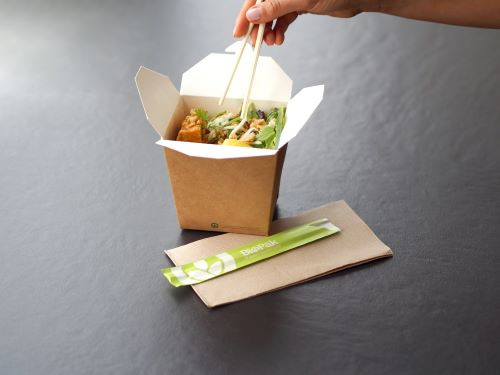
A Beginner's Guide to Sustainable Packaging
31st Aug 2020
Sometimes our understanding of what sustainable packaging is and why it's important can get confused in all the detail around the minutia. So here is your beginner's guide to sustainable packaging, summarised and laid out straight.

What is Sustainable Packaging?
Labelling a product as 'green' is not a guarantee of sustainability. Sustainable products should be compostable and carbon neutral, among others. While products labelled 'green' may appear eco-friendly, the term really doesn't mean anything. Neither does 'eco-friendly'. Instead, you should look for more tangible descriptions such as:
- Compostable
- Non-toxic
- Ozone-safe/friendly
- Recyclable
- Made from recycled content
- Made with renewable energy
- Made with renewable materials
- Refillable/reusable/resealable
- Carbon neutral
And compostable packaging is only the first step in a product becoming sustainable. Reducing the size and weight of items, using post-consumer recycled material, and reducing emissions are other factors, which is why BioPak is certified carbon neutral and always looking to improve their product designs.
Why Sustainable Packaging?
By switching to sustainable packaging, you can contribute to a better future and save money in the process! Sustainable packaging has many benefits. Sustainably packaged products are likely to sell more than unsustainably packaged ones, and businesses can reduce their landfill collection costs by providing compostable products and disposal options.
Taking Action Towards Sustainability
We have to keep striving for sustainability - whether by choice or by regulations. Change isn't always easy. Until now, the argument has generally been around early adopters being gently directed into pursuing sustainable packaging out of self-interest and good conscience. However, regulatory forces may well come into play in the future with legislation around plastic production and pollution. The transition period can, meanwhile, be a phase of growing pains. We see items in the shops that are "made with 90% compostable material" – but still cannot be composted because of the other 10%, if the two parts cannot be separated. We see cafes providing compostable cups, but without an organics bin to dispose of them – or people walk away with their takeaway coffee and cannot find an organics bin elsewhere because organics recycling has not been adopted by the council. This is not to discount the good work that such initiatives are doing – however, we must be aware of the limitations of existing sustainable packaging and constantly strive to improve them.
Information taken from Global Vision. Read about why you should support B Corps, and the approaching Zero Waste Week, on our blog.
Planet Friendly Packaging acknowledges the traditional custodians of the land on which we work. Our thoughts go out to everyone affected by COVID-19. Stay safe.

